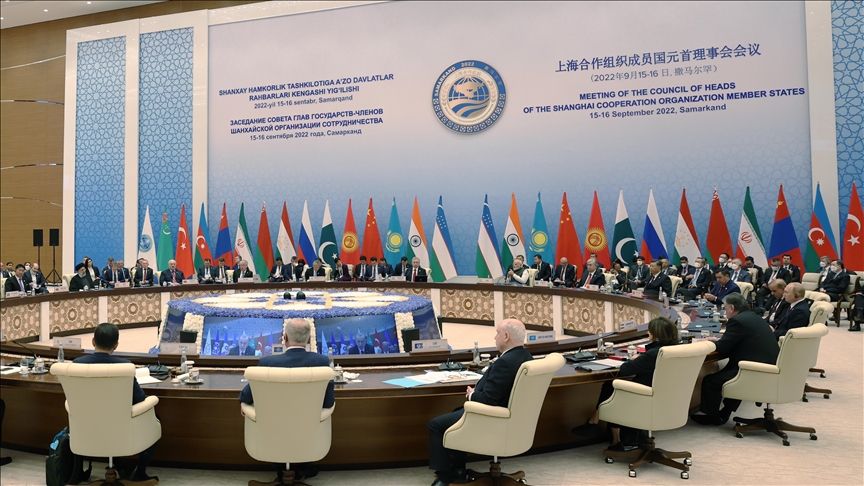
Regional organizations are becoming increasingly important in a world marked by shifting alliances and the emergence of complex geopolitical challenges. One such organization is the Shanghai Cooperation Organization (SCO), which envisions regional integration in the Eurasian region. Recently, Pakistan assumed the 2023-2024 Chair of the Council of Heads of Governments, the second-highest decision-making forum within the SCO. The heads of government meetings will occur from October 15-16 in Islamabad.
As Pakistan grapples with increasing security threats and economic instability, this meeting presents an opportunity to engage with member countries of SCO effectively. The SCO’s vision of ‘Eurasian connectivity’ sits well with Pakistan as it is located at the crossroads of South Asia, Central Asia, and the Middle East, making it an ideal trade conduit. As per the Ministry of Foreign Affairs Pakistan, this year’s meeting in Islamabad will focus on the financial, economic, socio-cultural, and humanitarian cooperation among member states of this organization. As Pakistan assumes the rotating chair of SCO, it is important to know which issues Pakistan can bring to cater to issues at home as well as at the regional level. Pakistan can raise a range of pivotal issues during the SCO meeting, positioning itself as a key advocate for regional cooperation and development.
Firstly, enhanced cooperation on terrorism is the top priority of Pakistan, keeping into consideration growing threats from militant groups operating in the region. Pakistan is situated in a volatile neighborhood where, on one side, there is unstable Afghanistan, and on the other, the tensions with India pose serious security challenges. The recent upsurge in terrorist attacks calls for a comprehensive approach to address the challenges associated with growing terrorism in the region. Countering terrorism is aligned with the ‘Shanghai spirit’ that laid the foundation for this regional organization. This meeting in Islamabad would be an opportunity for Pakistan to engage member states of SCO for meaningful engagement to counter-terrorism in the region.
Secondly, on the economic front, Pakistan faces multiple challenges owing to domestic political instability. The importance of SCO lies in the geographical area it encompasses, as it makes up 30% of the global GDP and 40% of the world’s population. The membership of Russia and China, two major powers, increases the prospects of economic engagement for smaller states. Pakistan’s engagement with China is most prominently manifested through the China-Pakistan Economic Corridor (CPEC), which has now entered its second phase of development. Alongside China, this forum provides a platform where Pakistan can engage with resource-rich Central Asian states, diversifying its trade partnerships. However, the instability in Afghanistan has hindered Pakistan’s efforts to secure reliable transit routes into the Central Asian republics. The volatile security situation, coupled with border management challenges, has delayed the implementation of several key transit trade agreements.
Despite Pakistan’s strategic location as a potential trade hub, the uncertainty in Afghanistan has complicated logistics, disrupted supply chains, and deterred investment in regional connectivity projects like the Pakistan-Afghanistan Transit Trade Agreement (APTTA)and energy corridors, limiting Pakistan’s access to Central Asian markets and economic integration efforts. Sustained economic activity can only be realized once the security and stability issues in Afghanistan are resolved. Considering its economic and security strengths, the SCO could possibly help Pakistan reduce border tensions and extend a zone of peace to South and Central Asia.
Another major issue raised in the SCO is Pakistan-India relations, as tensions between India and Pakistan may affect the outcomes of the meeting. The rivalry of both Asian neighbors has previously crippled the South Asian Association for Regional Cooperation (SAARC). Many analysts argue that the presence of India and Pakistan in SCO could have the same impact, but my arguments differ. SCO has much stronger foundations led by China and Russia, and they’ll make sure that the organization focuses on broader regional issues rather than bilateral tensions. China and Russia, the two most powerful SCO members, have strong diplomatic and economic ties with both India and Pakistan. Their role as mediators within the SCO helps manage tensions between the two, ensuring that their rivalry doesn’t derail the organization’s functioning. Indian Prime Minister(PM) Modi is also invited to the heads of government meeting in Islamabad, but chances are less for his visit. Instead, the government of India is considering sending foreign minister Dr. Jaishankar.
The road ahead is still convoluted, even if Pakistan has an opportunity to engage with regional countries and address pressing economic and security issues at the SCO Heads of Government meeting. Pakistan’s strategic objectives are in line with the larger objectives of the SCO. These objectives include combating terrorism, improving economic cooperation, and strengthening regional connectivity. However, achieving the full potential of these prospects is hampered by the ongoing insecurity in Afghanistan and the turbulent domestic political situation. Pakistan must adopt pragmatic policies. The SCO is a platform that presents Pakistan with opportunities to collaborate, but it must be followed with strategic insight and realistic expectations rather than a panacea for Pakistan’s problems. While the organization can offer a framework for regional cooperation, Pakistan’s internal political stability and successful policy implementation will be essential to maximizing these interactions, especially with China and the Central Asian republics. Thus, the meeting of SCO in Islamabad should be viewed as a first step toward increased integration; nevertheless, success will necessitate consistent work and diplomatic acuity outside of this platform.
